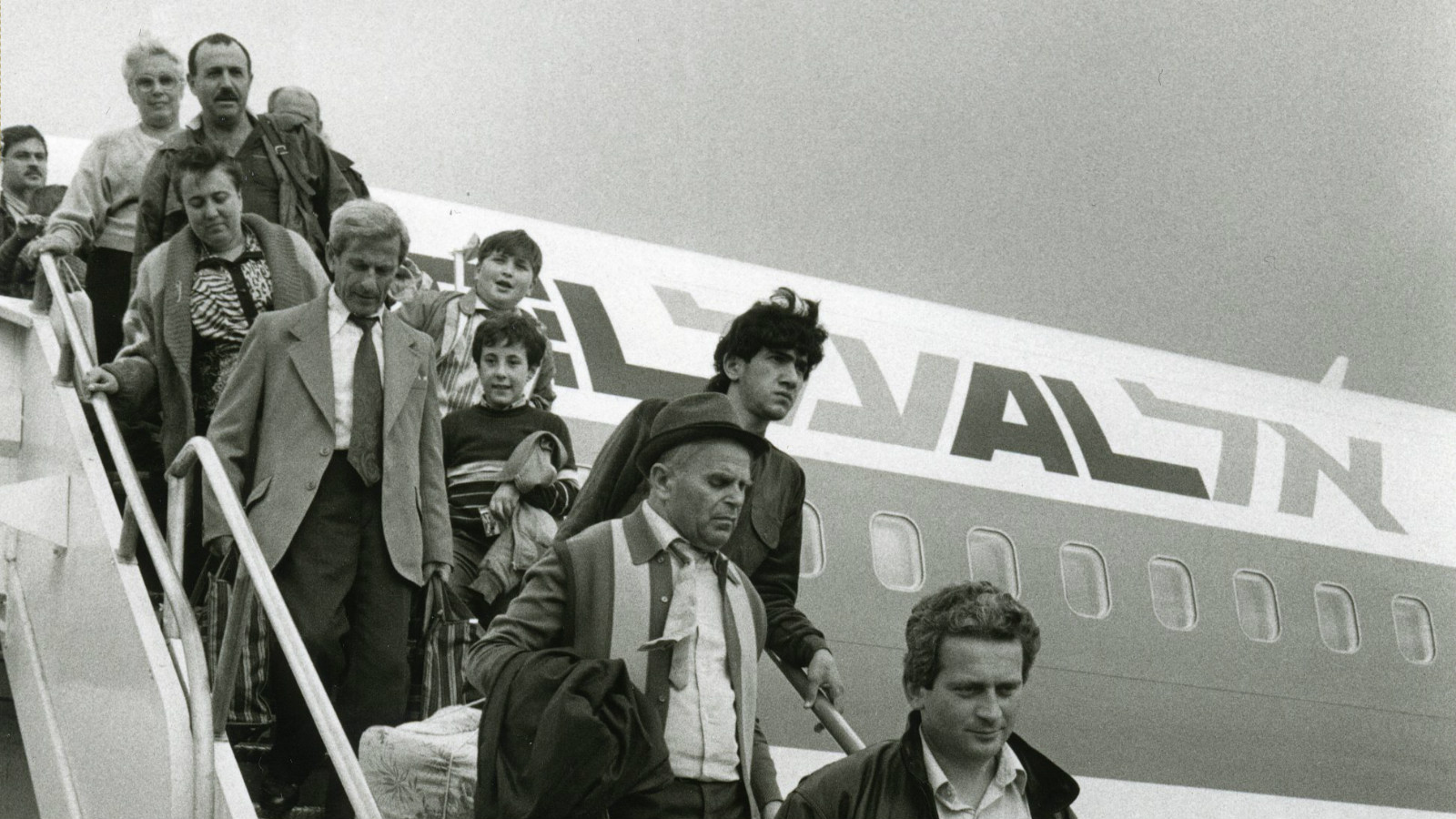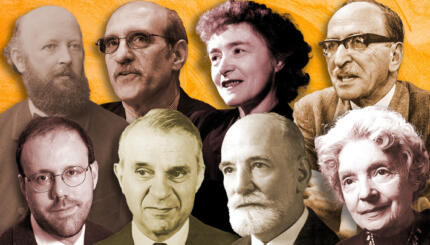Modernity did not affect all Jews at the same time or in the same way. The replacement or supplementing of religious community with a national affiliation as their primary allegiance was directly linked to the modernization of the societies in which they lived.
Jews living in France experienced modernity sooner and in a different fashion than their co-religionists in Yemen or Russia. Still, the struggle to become part of the modern nation state was a key part of the process for Jews everywhere. At the heart of this struggle were questions of identity — what it means to be a citizen, and a Jew.
The Early Modern Period
Historians in their periodization of Jewish history have come to refer to the gradual process by which modern conditions affected Jewish life as the “early modern” period. These characteristics include nationalism, capitalism, population increase, and, most notably, legal emancipation (the granting of civil rights) and liberalism. Scholars have long debated which factors proved determinative in the substantive beginning of modern Jewish history.
Emancipation and the Citizenship Ideal
Jewish reactions to the promise of citizenship (and thus political, and hoped-for social, emancipation) varied. Many Jews embraced the promise of emancipation, by acculturating to become Russians (Germans, Italians…) “of the Mosaic faith,” while others sought to change the terms, pursuing alternatives like Zionism, socialism, and immigration to Palestine or the United States. The Holocaust struck a significant blow to the citizenship ideal. The destruction of European Jewry led to a realignment of world Jewish leadership in the postwar period, putting Israel and the United States at the helm of world Jewry.
With your help, My Jewish Learning can provide endless opportunities for learning, connection and discovery.
Religious and Cultural Innovation
The freedom of individuals to study, explore and invent in the modern period resulted in Jewish cultural and religious innovation. The emergence of modern denominationalism, for example, attests to the variety of approaches that Jews devised as a response to the identity question. The formation of new kinds of Jewish organizations, like synagogue sisterhoods and university Hillels, demonstrates the quest to create new kinds of religious community.

Evolving Relations with Non-Jews
Modernity brought new possibilities for contact between Jews and their neighbors, both on a personal and collective level. Social relationships between Jews and non-Jews became much more common. From intermarriage to interfaith dialogue, Jews and non-Jews have created new categories of relationship and community. These developments were accompanied by another uniquely modern negative phenomenon: anti-Semitism.
Intellectual History
Modern Jewish thought has also been fueled by the promise of emancipation. The Haskalah, the European-based movement for Jewish enlightenment, emerged as an effort to revive those Jewish intellectual traditions that were complimentary to European culture. The academic study of Judaism, the Wissenschaft des Judenthums, grew out of the Haskalah and examined Jewish religion from the perspectives of theology, literature, and history. It thus set the stage for future modern Jewish philosophers, like Franz Rosenzweig, Mordecai Kaplan, and Abraham Joshua Heschel to ask questions about modern Jewish identity (for example, regarding the particular and the universal within Judaism, and the relationship between the concepts of religion, people, and nation).
Demographic and Geographic Changes
Modern Jews moved and multiplied. At the end of the 18th century, the world Jewish population was approximately 2.5 million, the majority of whom lived in Eastern Europe or the Ottoman Empire. By the second half of the 20th century, the world Jewish community had been completely transformed, numbering 13 million with a majority living in Israel and the United States. This remarkable growth during the modern period contributed to the urbanization of the Jews and the diversification of their economic activities. Previously relegated to commercial occupations, mostly petty trade, modern Jews took advantage of newly won access to education and opportunity to take on new roles in the business and professional world.
Hanukkah
Pronounced: KHAH-nuh-kah, also ha-new-KAH, an eight-day festival commemorating the Maccabees' victory over the Greeks and subsequent rededication of the temple. Falls in the Hebrew month of Kislev, which usually corresponds with December.



